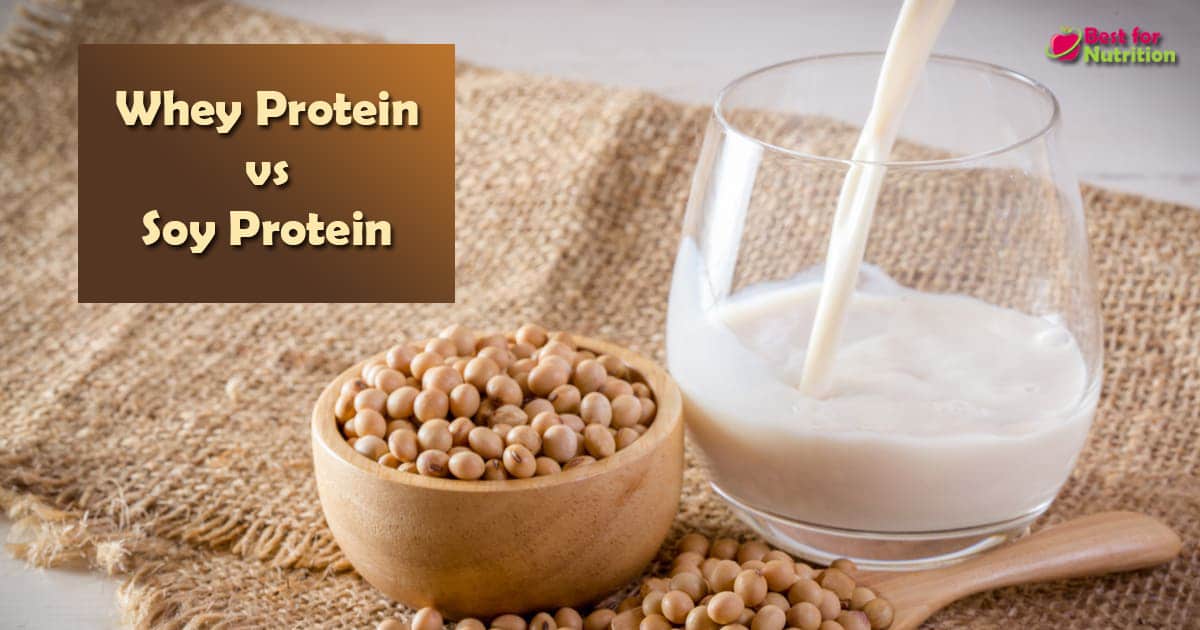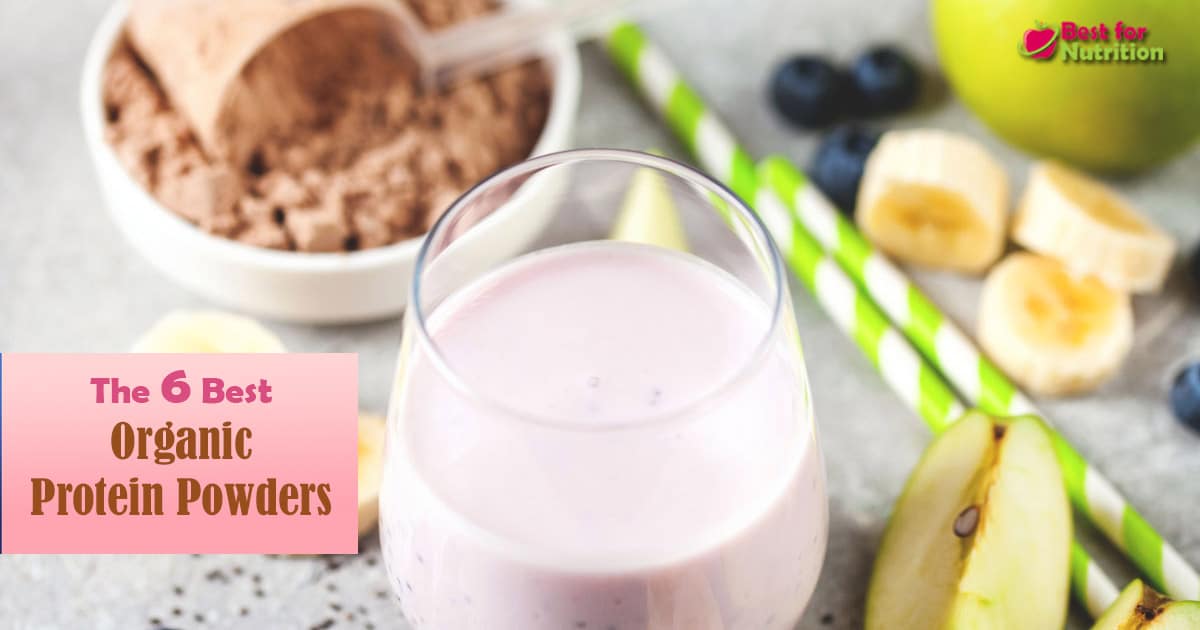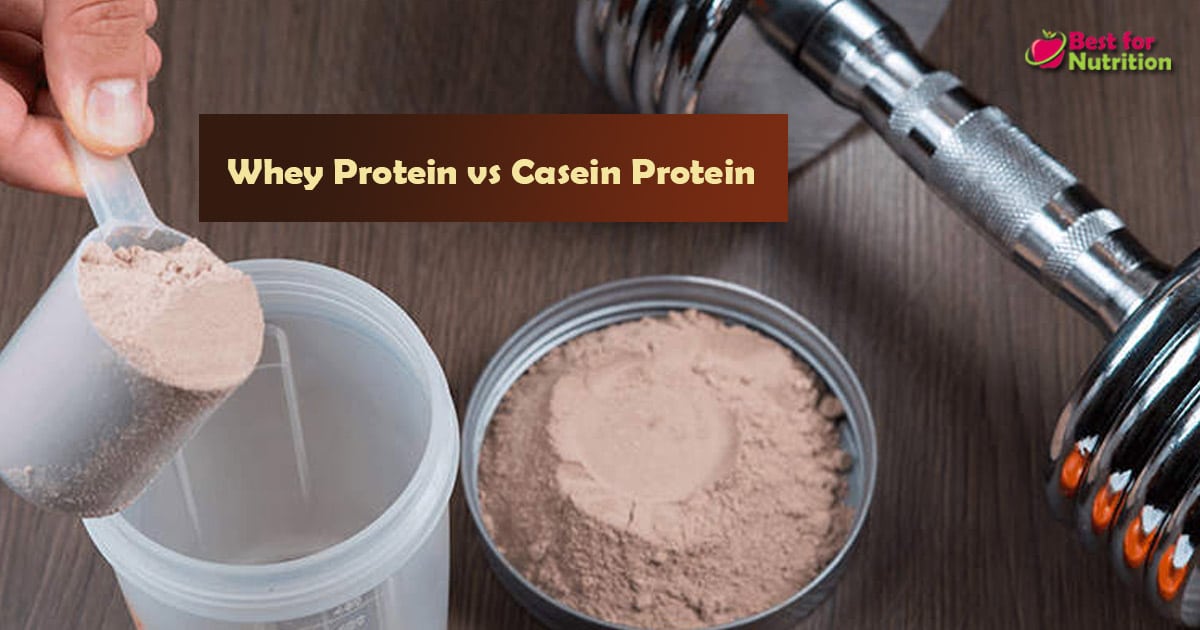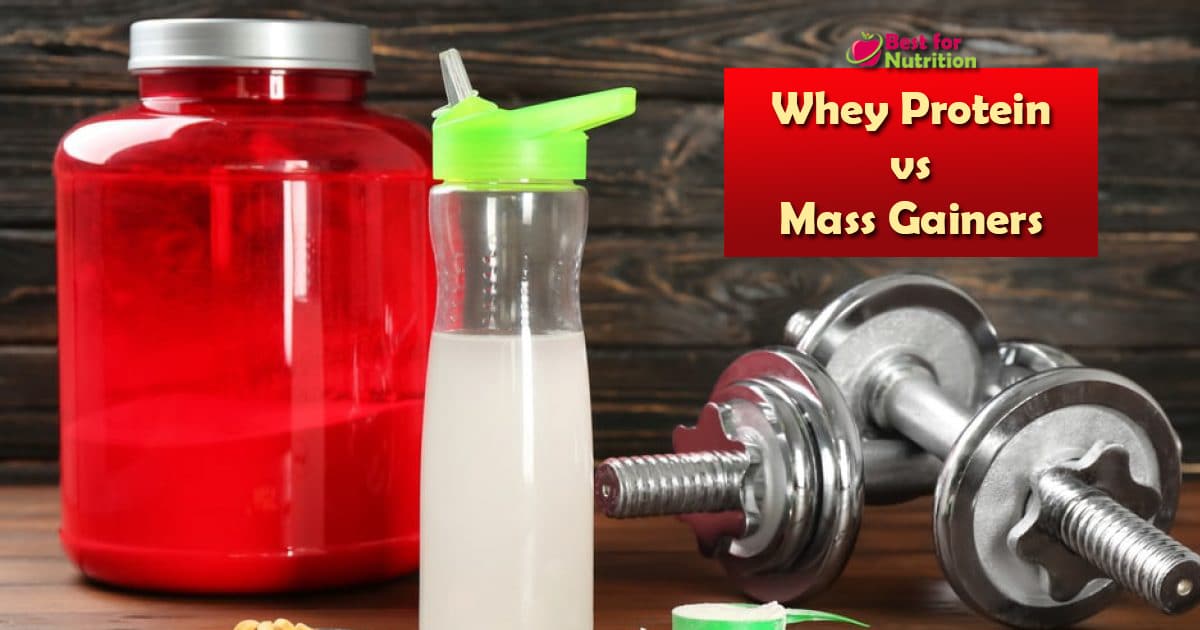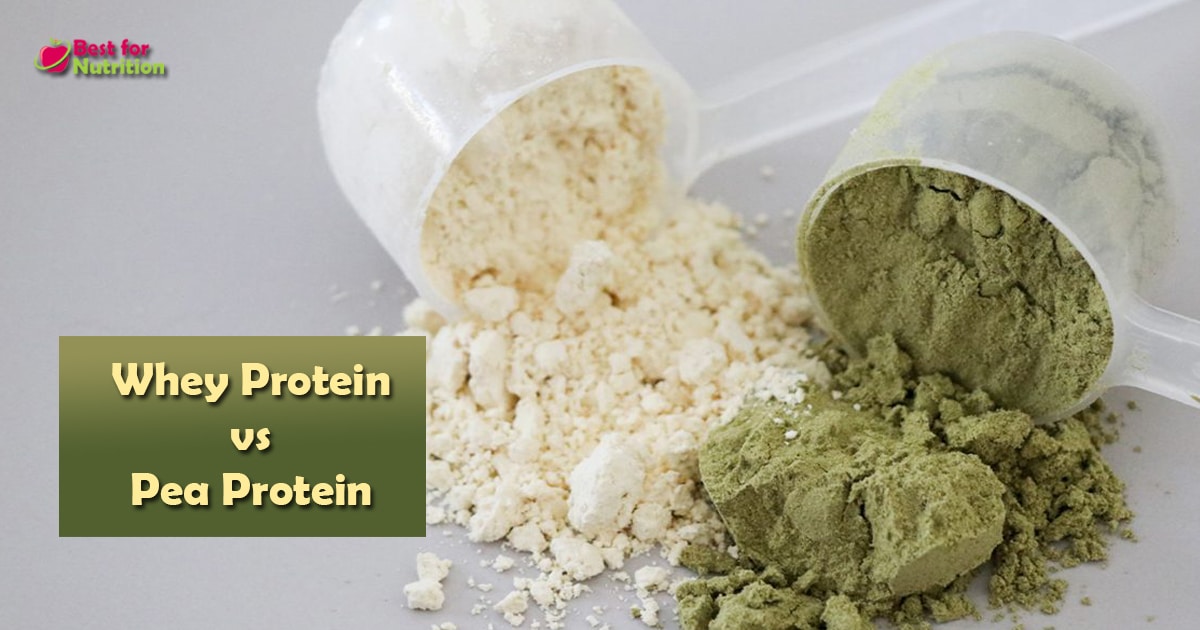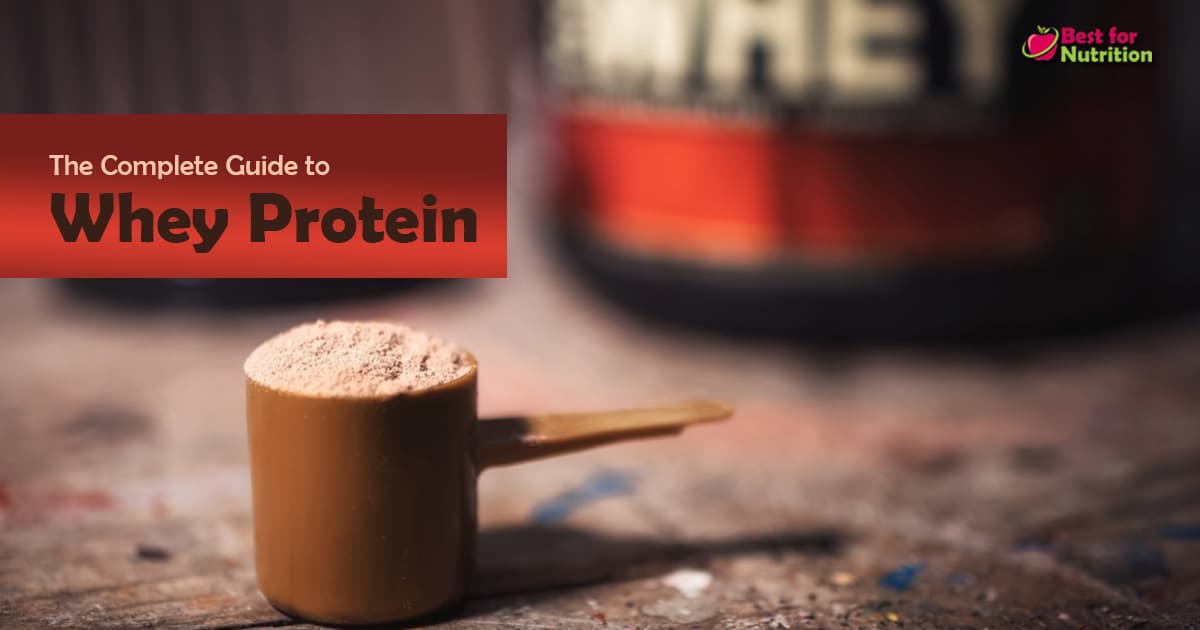Lactose is a natural sugar present in milk. The inability of the digestive system to break down this lactose sugar is referred to as lactose intolerance. About 65% of individuals around the world are lactose intolerant (1).
The smallest quantity of milk or lactose in food may trigger digestive disturbances in lactose intolerant people, such as nausea, excessive gas, bloating, feeling of being full, and even abdominal pain.
Regular milk-based protein powders pose a problem to such lactose intolerant people and hence, lactose-free protein powders are a major boon to them.
We have picked six of the best lactose-free protein powders available in the market for you to choose from.
Our Best Picks:
1. Best Lactose-Free Protein Powder using Rice Protein: SPORT Protein Oryzatein®
2. Best Lactose-Free Organic Protein Powder: Orgain Organic Protein
3. Best Lactose-Free Protein Powder in Taste: Jay Robb Whey Protein Isolate
4. Best Lactose-Free Protein Powder with Zero Carbs: Isopure Zero Carb Whey Protein
5. Best Lactose-Free Protein Powder for Vegans: Vega Sport Premium Protein Powder
6. Best Lactose-Free Protein Powder Overall: Legion Whey+ Chocolate Whey Isolate Protein
Let’s look at each protein powder individually to find out what’s so special about them.
1. Best Lactose-Free Protein Powder using Rice Protein- SPORT Protein Oryzatein®
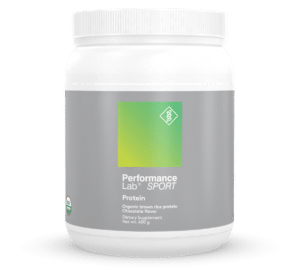
Brown Rice Protein is an excellent protein alternative for individuals sensitive to dairy and egg protein. Brown rice protein may be equally effective as whey protein, in fat loss and muscle protein synthesis (2).
The great thing about brown rice protein is its intermediate rate of absorption, which is between a fast-digesting whey protein and a slow-digesting casein protein. It’ll keep you feeling full for a longer time (compared to whey) without the initial hunger associated with casein protein.
About SPORT Protein Oryzatein®
The SPORT Protein Oryzatein® is a complete protein sourced from the best organic rice farms around the world.
The manufacturing process is completely chemical-free and uses only natural enzymes and low heat. The product is vegan, gluten-free, and dairy-free.
Oryzatein® rice protein boasts of a 30% increase in the uptake of leucine when compared to whey. Leucine is an essential amino acid responsible for kickstarting muscle protein synthesis. Another constituent, the probiotic Bacillus coagulans optimizes the protein absorption quality.
Overall, Oryzatein® rice protein can improve muscle strength and power by promoting vigorous muscle growth and recovery. It also builds up endurance and athletic abilities.
SPORT Protein Oryzatein® is a non-GMO, gluten-free supplement with natural sweeteners and Himalayan pink salt which is a great source of potassium, magnesium, and sodium.
What it Contains:
Each serving of 30g (2 scoops) contains:
- Protein: 20g
- Energy: 100 calories
- Fat: 1.2g
- Carbohydrates: 2g
- Sugar: 1g
Other micros present include Manganese (1.3mg), Magnesium (9mg), Phosphorus (96mg), and Iron (21.mg).
A container of SPORT Protein Oryzatein® has 20 servings (one serving comprising 2 scoops or 30g) designed to last one month. The suggested serving for this protein powder is 2 scoops, mixed with 200-450 ml of water. It should be taken either as a pre-workout supplement (2-3 hours before) or immediately post-workout.
Since brown rice protein is completely organic, it is naturally low in calories. Unlike dairy proteins, it does not cause any insulin spikes in the body and protects against unnecessary weight gain (3).
When taken with a quality carbohydrate source, Oryzatein® rice protein quickly targets sore muscles and helps in their growth and repair.
The Pros:
- Chemical-free manufacturing processes
- Delivers 30% more leucine
- 100% plant-based
- Gluten-free
- Non-GMO
Summary: SPORT Protein Oryzatein® is as effective as whey in increasing fat loss and lean muscle mass. It has an intermediate absorption rate with a 30% faster delivery of leucine that aids robust muscle growth. The manufacturing process is clean from start to finish.
2. Best Lactose-Free Organic Protein Powder – Orgain Organic Plant-Based Protein
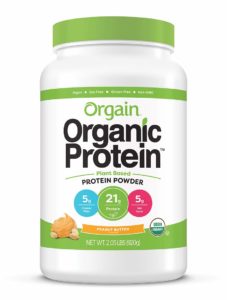
Organic protein powders contain all-natural ingredients with no artificial sweeteners and additives.
Certain protein powders contain a blend of plant proteins to make a complete amino acid profile. The plant proteins commonly used are pea protein, soy protein, rice protein, and hemp protein.
About Orgain Organic Protein
Orgain Organic Protein is a popular plant-based protein powder, certified by USDA (United States Department of Agriculture) as 100% organic. It is also vegan, gluten-free, soy-free, dairy-free, and non-GMO.
The amalgamation of various plant proteins makes this product a healthy and complete protein option for vegans. It is formulated with clean, high-quality ingredients with no artificial sweeteners or sugars.
Orgain Organic Plant-Based Protein can be taken as a food supplement or a meal replacement pre and post-workout. It reduces appetite by keeping you feeling full longer.
This product is available in eight delicious flavors like Creamy Chocolate Fudge, Chocolate Peanut Butter Cup, Cookies And Cream, Vanilla Bean, etc. Cookies and Cream being a crowd favorite.
What it Contains:
One serving (2 scoops) of Orgain Organic Plant-based Protein has:
- 160 calories with 21g of mixed plant protein (pea, brown rice, chia seeds)
- 6g of fiber
- 16g total carbs
- 1g sugar
Organic sweeteners such as stevia and acacia gum are easily digestible and low in calories (4). A tub has approximately 20 servings.
The other ingredients are Orgain Organic Protein Blend (Organic Pea Protein, Organic Brown Rice Protein, Organic Chia Seed, Organic Hemp Protein). It also has organic peanuts, potassium chloride, and sea salt.
The recommended serving is 2 scoops of protein powder mixed with 200-400 ml of water or milk to be taken either before or after a workout to fuel energy.
Almond milk is a popular option by fitness enthusiasts and enhances the taste of the protein shake. Orgain Organic Protein can also be added to cakes, muffins, and brownies for a healthy protein dessert option.
The Pros:
- USDA Organic
- Vegan
- Non-GMO
- No artificial additives or sugars
Summary: Orgain Organic Plant-based Protein powder is a multi-source complete protein, certified organic by USDA, and formulated using a range of nutritious vegan ingredients.
3. Best Lactose-Free Protein Powder in Taste- Jay Robb Whey Protein Isolate
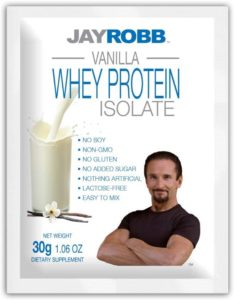
Whey Isolate Protein is a higher grade of processed whey, in which all the carbs, fats, and sugars are removed, leaving behind an isolate with little to no lactose in it (5).
About Jay Robb Whey Protein Isolate
Jay Robb Whey Protein Isolate is a high-grade protein powder, manufactured using dairy sourced directly from farm-raised, grass-fed cows. To deliver a completely natural product, Jay Robb ensures that their cows have not been treated with any bovine growth hormones (rBGH).
The whey protein isolates are manufactured through a cold-processed cross-flow micro-filtering process using specialized ceramic membranes to ensure top quality.
This manufacturing process produces whey protein isolates with richer protein content than regular whey concentrates. These whey isolates are also loaded with immune-boosting substances such as immunoglobulins, alpha-lactalbumin, and beta-lactalbumin.
Intended to create a pure protein powder without any artificial sweeteners or sugars, Jay Robb Whey Isolate Proteins have natural stevia extracts that give a natural sweetness and a delightful taste. After all, their tagline reads “The Best-Tasting Protein on the Planet”.
What it Contains:
Each serving of 1 packet contains:
- Energy: 110 Calories, with 25g of cold-processed cross-flow microfiltered Whey Protein Isolate
- Fat: 0g
- Net Carbohydrates: 2g
- Sugar: <1g
- Potassium: 180mg
The product contains 12 single-serving packages of Jay Robb Whey Isolate Protein Powder.
The recommended amount of Jay Robb Whey Isolate protein powder to be taken is one or two packets a day as a diet supplement. It mixes easily with water, milk, or any other beverage.
The product comes with an allergen warning for eggs and other ingredients such as soy, dairy, wheat, tree nuts, shellfish, fish, and peanuts which may be present in trace quantities.
However, it is gluten free, non-GMO, and is totally devoid of any artificial flavors or sugars. It is also keto-friendly and vegetarian.
The Pros:
- Keto
- Gluten-Free
- Casein Free
- MSG Free
Summary: Jay Robb Whey Protein Isolate is a delicious tasting lactose-free protein powder that is packed with protein, micronutrients, and immune-boosting factors for the perfect health boost pre or post-workout.
4. Best Lactose-Free Protein Powder with Zero Carbs – Isopure Zero Carb Whey Protein
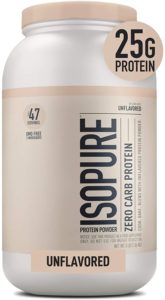
Isopure protein powders are manufactured using a process of microfiltration that removes all the carbohydrates and sugars from the way to make it Zero Carb.
About Isopure Zero Carb Whey Protein
The Isopure Zero Carb Protein Powder is the best in the market for people looking for low carb protein powders. Isopure Zero Carb Protein packs in a decent amount of whey protein in as little calories as possible.
This whey protein powder is keto-friendly and free of gluten. It has virtually zero carbs and fats. It is also free from any kind of artificial sugars or additives. The microfiltration method used to make Isopure is so thorough that it is one of the few clear milk proteins when mixed in water.
The Isopure Zero Carb Protein Powder is intended for those looking to supplement their diet with extra proteins, be it for fitness, sport, or general wellness. It’s an excellent product that builds muscle strength and boosts endurance during exercise or sporting activities.
What it Contains:
Each serving of 1 scoop (29 g) consists of:
- Energy: 110 calories with 25 g of 100% Whey Protein Isolate
- Fat: Nil
- Carbohydrates: Nil
- Sugars: Nill
- BCAAs: 5.67g
- Natural L-Glutamine: 2.57g
A 3 lb tub has approximately 47 servings of 1 scoop each. The suggested quantity to be taken for dietary supplementation is 2 scoops with 200-400 ml of water. Use a shaker or blender to mix properly, or if unavailable, stir into a liquid with a spoon.
The best thing about Isopure WPI Powder is that it is unflavoured so you can add it to your cooking recipes without any hesitation.
Blend with water, milk, or your favorite smoothie shakes; add to your soups, sauces, or baked items for a healthy protein meal.
The Pros:
- Zero fat, carbs, fillers, and sugars
- GMO-free
- Gluten-free
- Keto-friendly
Summary: This is the go-to lactose-free protein powder if you are looking for one with as little carbs as possible. High-quality protein derived from grass-fed cow dairy is perfect for muscle and strength gains.
5. Best Lactose-Free Protein Powder For Vegans- Vega Sport Premium Protein Powder
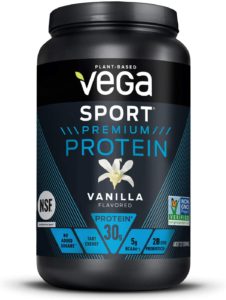
Vegan protein powders consist of plant proteins such as pea, hemp, soy, and brown rice protein. They contain natural zero-calorie sweetening agents like stevia or monk fruit.
About Vega Sport Premium Protein Powder
A good quality protein supplement, the Vega Sport Premium is a vegan protein powder prepared from multiple plant sources such as pea protein, pumpkin seed protein, organic sunflower seed protein, and alfalfa protein.
These unique protein sources combine to give you all the nine essential amino acids required for your body.
Manufactured in facilities powered by bullfrog energy (a 100% green energy), Vega Sport Premium Protein strives to bring you top-quality products which are dairy-free, gluten-free, non-GMO, and suitable for ketogenic diets too.
The ultra-new formula contains special ingredients such as probiotics (bacillus coagulans) and tart cherries to enhance the uptake of protein by muscle cells, and support rapid muscle recovery after heavy workouts.
It’s available in five tasty flavors: Chocolate, Vanilla, Mocha, Berry, and Peanut Butter.
What it Contains:
Each serving scoop (44 g) of protein powder contains:
- Plant protein: 30g
- Carbohydrates: 6g
- BCAAs: 5g
- Glutamic acid: 5g
It also contains probiotics (Bacillus coagulans [provides 1 billion CFU/serving]), and bromelain.
Available as a container with 20 servings to run month-long. The product may contain trace amounts of eggs, soy, milk, tree nuts, or peanuts so a fair warning for those with the above-mentioned allergies.
To get the best out of its use, mix 1 scoop of Vega Premium Protein with water or any other non-dairy milk of your choice (e.g. almond milk) in a blender or shaker. You can even include it in your fruit smoothies as a nutritious meal replacement.
The Pros:
- Certified Vegan
- NSF Certified for Sport
- Keto-Friendly
- 96% PCR plastic tubs
Summary: The whole process of manufacturing Vega Sport Premium Protein Powder is very environment friendly and uses all-natural vegan ingredients. It packs in a robust quantity of plant protein along with BCAAs, glutamic acid and special ingredients such as probiotics and tart cherry extract to promote enhanced protein delivery.
6. Best Lactose-Free Protein Powder Overall – Legion Whey+ Chocolate Whey Isolate Protein
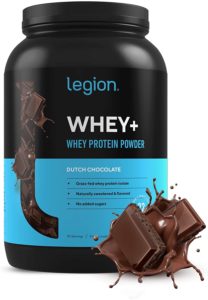
Whey Isolate Protein Powders are a superb option for lactose intolerant individuals. They are among the highest quality whey you can take to maintain your muscle mass and ultimately stay healthy. You can be sure to get a pure blend of 90% protein by weight without any other additives.
About Legion Whey+ Chocolate Whey Isolate Protein
A great product, easy on the pocket, and made with ingredients picked out from all-natural and sustainable sources, Legion Whey+ Whey Isolate Protein is a premium grade protein powder. In the market, it is one of the finest whey proteins for lactose-intolerant people.
Legion Whey+ Whey Isolate is prepared from premium-quality milk sourced from grass-fed cows in small dairy farms in Ireland. The dairy supplied from here is the cleanest and most nutritious across the globe.
To ensure that all stocks undergo proper testing during the manufacturing process and result in products that are safe, the US government has developed NSF and GMP approved facilities.
The Legion Whey+ Protein has an NSF and GMP stamp, which means that it has been strictly tested by a third party before distribution.
This protein powder is ideal for those with gluten insensitivity. It is also free from soy, MSG, GMOs, hormones, antibiotics, and any other artificial flavoring or sweeteners.
Formulated especially for powerlifters, athletes, sportspersons, or anybody living an energetic lifestyle, the Legion Whey+ Protein not only contributes to muscle mass and endurance levels but also promotes positive moods and mental focus.
What it Contains:
Each serving of 28.9 g (1 scoop) contains:
- Energy: 100-120 calories
- Protein: 22 grams
- BCAAs: 5.6g
- Fat: 0g
The Legion Whey+ Whey Protein Isolate comes in 10 interesting flavors ( like Dutch Chocolate, French Vanilla, and Birthday Cake) so you can always be spoilt for choice. There’s even an unflavored option for those preferring a simple route.
Mix 1 scoop of the Whey+ Isolate Protein powder with your favorite beverage to get a great tasting healthy drink in no time. It mixes very well with water and almond milk. You can even include it in your baked goods such as cakes, muffins, or brownies.
The Pros:
- NSF & GMP Certified
- Gluten-free
- 100% naturally sweetened and flavored
- No GMOs, hormones, or antibiotics
Summary: One of the most affordably priced protein powders, for the premium quality you get, free from artificial sugars and unnatural additives. It ticks all the boxes in your best lactose-free protein powder category.
Dosage Instructions for Lactose-Free Protein Powders
Dosage instructions for lactose-free protein powders are similar to regular protein powders.
The Recommended Daily Allowance (RDA) of a normal adult is 0.8 g per kilogram of the body weight. So if an individual has a bodyweight of 65 kg, they need to take 0.8 x 65 = 52 g of protein daily to maintain healthy body functions.
This, however, is not the case for physically active individuals or those with higher protein requirements, such as pregnant and lactating women, infants, children, and aged individuals.
Having a medical condition also increases the body’s daily protein requirement. It’s interesting to note that these values aren’t different for males or females. It’s solely based on the grams per kilogram of body weight, irrespective of gender.
The recommended protein dosage does vary if your daily energy expenditure is significant, as in the case of performance athletes. Within the category, factors like the type of athletic activity, exercise intensity and duration, age, and goals (either weight loss or weight gain) also determine the RDA.
Generally, for endurance athletes like marathon competitors, the RDA is between 1.2 – 1.4 g/kg body weight and for power athletes like weightlifters, the RDA is between 1.2-1.7 g/kg of body weight.
We generally do not consume as much protein as we should on a daily basis, so there’s always room to up your protein intake. According to Harvard Health, taking up to 2 g/kg of body weight daily is safe (6).
Post-workout intake of protein powders is a great way to supply muscles with the required protein. But, it’s important not to take your entire dose of daily protein in one go. It’s best to pace your protein intake throughout the day.
Summary: Recommended daily allowance of protein for a healthy adult is 0.8 g/kg body weight. The RDA becomes higher in physically active individuals (more in power athletes than endurance athletes), pregnant and breastfeeding women, and the elderly.
Side effects and Risks of Using Lactose-Free Protein Powders
Although there is an ongoing debate about potential side effects and risks associated with the long-term use of protein powders, there is no real scientific evidence supporting the claims.
Normal individuals with healthy body function can safely tolerate whey (or any other type of protein powder) within the recommended dosage without fear of significant health risks.
However, certain stomach problems such as constipation, diarrhea, bloating may occur if protein supplementation is not carried out properly.
Constipation: A commonly stated side effect is constipation but one must realize that it is not a direct result of taking protein powders. Constipation occurs in individuals who use protein powders as a meal replacement option and do not include whole fruits and vegetables in their diet. This results in a lack of dietary fiber which causes constipation symptoms.
Diarrhea: Another common side effect of lactose-intolerant individuals is diarrhea. This may be because of the presence of lactose in an impure or low-grade protein blend, coupled with a lack of dietary fiber from whole foods.
Sodium Content: Plant proteins like pea, hemp, soy, and rice protein are generally well tolerated. But some grades of pea protein powder are high in sodium (some of them contain up to 110–390 mg sodium per serving of protein) so it’s important to look up the nutritional labels before purchase.
High Fiber: If hemp protein is consumed very quickly or too much at once, some individuals may suffer from bloating, diarrhea, or gas because it contains a higher amount of fiber than other plant proteins.
Some research also suggests that pregnant and breastfeeding women, people with blood anemia, or those with an immune-compromised condition should avoid hemp protein but further clinical trials on humans need to be held to confirm the risks (7), (8).
Bad Breath: If protein intake is quite high and the carb intake is low, individuals may experience something called ketosis, where there is a deficiency of carbs in the body. Protein is broken down in the body to release energy which produces certain ammonia compounds, they give a fruity odor or bad breath from the mouth.
The Risk to Kidneys: Although too much protein cannot damage the kidneys of healthy people, individuals with existing kidney disease may need to limit their intake (9), (10). There could be a predisposition to developing kidney stones in such people.
Individuals taking a high protein diet with a lot of saturated fats may also have a greater risk of developing heart disease or colon cancer, compared to a high protein diet from plant sources which may not pose such a risk.
Summary: When protein powders are taken as meal replacements, without adequate fiber in the diet, symptoms such as constipation, diarrhea, and bloating may occur. Protein intake must be spaced out throughout the day and higher consumption of protein may cause bad breath due to ketosis.
Frequently Asked Questions (FAQs)
Are Lactose-free Protein Powders Complete Protein?
Most of the lactose-free proteins in the market are complete proteins because they are prepared from whey isolates (a higher processed form of whey protein) or a blend of different plant-based proteins such as pea, hemp, rice, soy, etc.
Although plant-based protein powders come under a lot of criticism for not being complete proteins independently, when they come together in a blend, they supplement each other to make a complete amino acid profile.
Do Lactose-free Protein Powders Taste Bad?
Lactose-free protein powders come in a variety of flavors, suited for everyone’s taste buds so you can always pick and choose what you like.
There isn’t much difference between regular protein powders and lactose-free protein powders in terms of taste.
Are There any Side Effects of Lactose-free Protein Powders?
There are no potential side effects of lactose-free protein powders.
How to Prepare a Lactose-free Protein Shake?
You can prepare a lactose-free protein shake in under five minutes. Blend or shake 1 scoop of your favorite lactose-free protein supplement with water or a non-dairy milk alternative (e.g. soy or almond milk).
You can even throw in fruits (e.g. banana, blueberry, strawberry) and nuts and seeds into your shakes to make a whole nutritious meal. Season with cinnamon or a pinch of salt for added taste.
The Final Note
Earlier, it was difficult to find a good protein supplement for lactose-intolerant people. But now, many high-quality lactose-free protein powders are available in the market to choose from.
There are products for everybody’s preference, be it lactose-free whey isolate protein, plant-based protein, vegan or organic protein. Quite a few of them are very affordable in price too.
The lactose-free protein supplements that we have mentioned above are all unique in their own right, but they get the job done.
Being complete protein products, they all contribute to increased strength, lean muscle mass, and recovery of damaged muscles. There are specific ingredients in them like probiotics and tart cherry that promote rapid muscle protein synthesis.
You can finally cast away your lactose troubles and focus on attaining the physique you’ve always wanted with these lactose-free protein supplements. What are you waiting for? Go ahead and order one right away!
